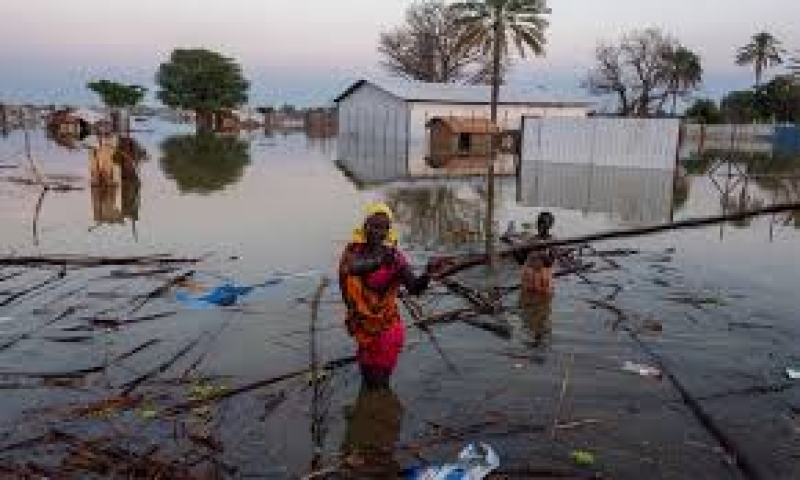- US Faces Pressure as UN Votes on Gaza Ceasefire |
- Prof Yunus includes 4 political leaders in UNGA tour del |
- Tarique calls for vigilance to prevent troubles during Puja |
- Parties divided on constitution order move over July Charter |
- Khulna’s ‘white gold’ shrimp eyes Tk 22,600cr export goal |
Climate change wreaks havoc on global water cycle: UN

Climate change is spurring increasingly erratic and extreme swings between deluge and drought across the world, the United Nations warned on Thursday.
The UN's World Meteorological Organization said in a report that the world's water cycle was becoming ever more unpredictable, with shrinking glaciers, droughts, unbalanced river basins and severe floods wreaking havoc.
"The world's water resources are under growing pressure and -- at the same time -- more extreme water-related hazards are having an increasing impact on lives and livelihoods," WMO chief Celeste Saulo cautioned in a statement released with the annual State of Global Water Resources report.
Last year was the hottest on record, leading to prolonged droughts in northern parts of South America, the Amazon Basin and southern Africa.
Parts of central Africa Europe and Asia, meanwhile, were dealing with wetter weather than usual, being hit with devastating floods or deadly storms, the report pointed out.
- 'Increasingly erratic' -
At a global level, WMO said last year was the sixth consecutive year where there had been a "clear imbalance" in the world's river basins.
"Two thirds have too much or too little water -- reflecting the increasingly erratic hydrological cycle," it said.
The organisation also flagged how the water quality in major lakes was declining owing to warmer weather, and glaciers shrank across all regions for the third year in a row, reports BSS.
The meltwater had added about 1.2 millimetres to the global sea level in a single year, contributing to flooding risk for hundreds of millions of people living in coastal zones, the report warned.
The WMO called for more monitoring and data sharing across the board.
"Understanding and quantifying water resources and hydrological extremes... is critical for managing risks," the report said, flagging the dangers of droughts, floods and glacier loss.

